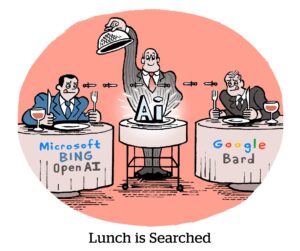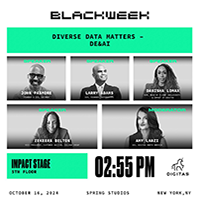Tech Stack
-
Shopper/Retail
Can retailers besides Amazon have a paid membership program?
True Classic’s $12 a year membership drives significant repeat purchases, said its VP of customer experience. The brand also boosted its CSAT score with a delivery date integration. Apparel retailer True Classic wants enrolling in its paid membership program to be a “no-brainer,” said Breanna Moreno, vice president of customer experience. And for […]
-
AI
What the Tragedy of Sewell Setzer III Teaches Publishers About Using AI Chatbots
Tragedy struck last week when a teen took his own life, leading some critics of AI to question if a Chatbot is partially responsible. Now, with Character.AI facing a wrongful death lawsuit, how much is Sewell’s death the startup’s responsibility?
-
Online Advertising
Based On Its Q3 Earnings, Maybe AIphabet Should Just Change Its Name To AI-phabet
Alphabet, which reported its third quarter earnings on Tuesday, generated more than $88 billion in Q3 total revenue, up 15% from a year ago. Meanwhile, YouTube’s combined advertising and subscription businesses surpassed $50 billion over the past year. This is the first time YouTube has ever hit that milestone. Impressive numbers. But investors seemed to […]
-
Behind the News
Click, Cancel, Clash: Inside Ad Tech’s Fight Against the FTC’s New Rule
The Interactive Advertising Bureau (IAB), along with the NCTA (Internet & Television Association) and the Electronic Security Association (ESA), have filed a lawsuit against the Federal Trade Commission (FTC) to block its new Click to Cancel rule. Is the FTC “overstepping its authority?” Let’s dig into why the industry is pushing back.
-
AI
AI, CTV and Data Collaboration Paving the Way for What’s Next
As we move forward, the interplay of AI, CTV, and data collaboration will continue to define many aspects of our future. Embracing these changes is paramount to gaining a competitive edge and unlocking new pathways for consumer engagement and connection. The key lies in adapting to these advancements while remaining vigilant about the ethical implications of technology. By prioritizing diversity and inclusivity within AI development, we can ensure that the tools we create serve a wider audience and reflect the rich tapestry of society.
-
Online Advertising
IAB Tech Lab Made Moves To Acquire Prebid In 2021 – And Prebid Said No
Seven years ago, as publishers were using header bidding to level the online auction with Google, Prebid was a bit of open-source header-bidding code developed by AppNexus. Fast-forward to today, and that code is now Prebid.org, a standalone industry standards body producing widely adopted open-source tech. The story of how Prebid.org came to be – […]
-
Shopper/Retail
Adjust, pivot and tweak: How digital marketers survive
Harrison Gross, CEO of smart eyewear brand Lucyd Eyewear, discusses the marketing and customer experience tactics the brand employs to stay relevant and growing in 2024. Facebook ads are roughly half as effective today than they were five years ago, said Lucyd Eyewear CEO Harrison Gross. Most retail marketers know this and point to Apple’s […]
-
AI
Diverse Data Matters: Unpacking AI, Culture, and Inclusivity at BlackWeek
With AI, everyone’s talking about efficiency, scale, and optimization. But at BlackWeek’s “Diverse Data Matters – DE&AI” session, the conversation took a turn — toward the very real blind spots lurking in AI’s algorithms.
-
cookies
Owning Identity in a Post-Cookie World: Why Publishers Need to Get Real About Data
As third-party cookies disappear from the digital advertising scene, publishers are waking up to a harsh reality: it’s time to rethink how they do business. For years, the industry has buzzed about data transformation, revenue diversification, and the importance of privacy regulations. But one key element is often overlooked — how to build a solid identity strategy that can reliably function within both the company and with external partners.
-
cookies
Beyond Compliance: Adapting to Privacy-Centric Platforms and Consumer Expectations
As online privacy regulations tighten, brands must adapt quickly to maintain consumer trust and stay compliant. Charles Simon, VP of Privacy Advertising Standards at RTB House explores how new laws and Google’s Privacy Sandbox are reshaping data strategies and the future of advertising.









